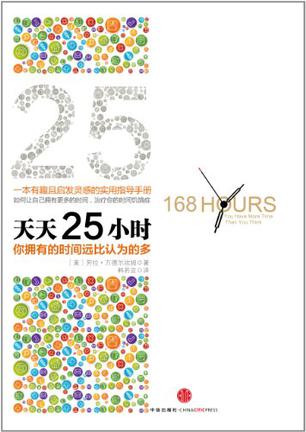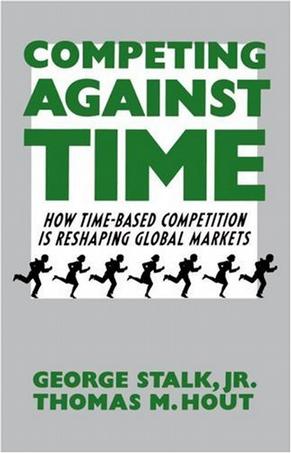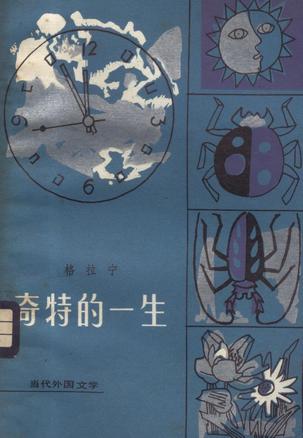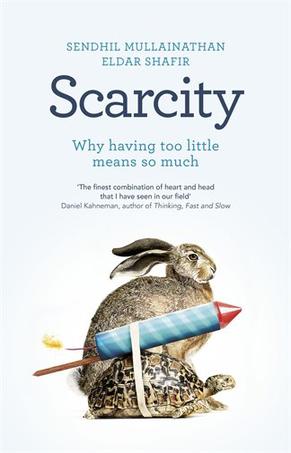-

天天25小时
《天天25小时》内容简介:不要放弃细碎的时间,少量时间也能带来乐趣。将核心竞争力之外的事情交给别人做,或者忽略、最小化这些事情。现代社会一个毋庸置疑的事实是:我们的时间不够用。随着双收入家庭、极限工作和一天24小时、一周7天无间断工作方式的兴起,生活疯狂到我们喘不过气来。我们告诉自己:我们希望读更多的书,定期去健身房,尝试新的业余爱好,达成各种不同的目标。但是随后我们却放弃了,因为我们根本没有时间去做所有的事情。 万德坎姆在书中向我们阐述了,幸福和成功的人与混日子的人之间至少有一个关键性的区别,那就是幸福的人尽量多地把他们的168小时都花在核心竞争力上。找寻核心竞争力需要我们记录一周168小时。一旦你找到核心竞争力,你就可以停止无谓的焦虑,开始客观地看待数据,然后着手掌控生活,获得最充实的168小时。 -

便利貼時間管理
早上10分鐘的奇蹟! 筆記女王Ada不藏私推薦 風靡日本上班族的最強時間管理術 ◆特別加贈2大時間管理新神器!◆ ∙ 便利貼時間管理隨身卡(隨書附贈) ∙ 3M三色便利貼(首刷限量加贈) 立即體驗日本上班族最愛,執行度100%便利貼時間管理術! 越是講求速度、效率的時代,越要懂得時間管理…… 這道理誰不懂? 但偏偏就是腦子了解時間管理的重要性,卻怎樣也做不到, 無法真正落實,便成了多數人虛擲光陰,無法控管時間的根本原因。 要管好你的上班精華8小時嗎? 不想浪費下班後的黃金8小時嗎? 台灣文具控也熱愛的高人氣文具「MEMOPIT」、「10min.」開發商KANMI堂社長, 與你分享日本上班族最愛、執行度100%的便利貼時間管理術, 只要準備幾張小小便利貼,加上寫、貼、排三步驟, 就能幫你安排時程、調整進度,遇到再緊急的狀況也不會手忙腳亂! 像拼圖一樣好玩的便利貼時間管理,小小工具大奇蹟, 簡單、高效率,每天早上10分鐘,就能整理一天完美績效! -

Competing Against Time
Today, time is the cutting edge. In fact, as a strategic weapon, contend George Stalk, Jr., and Thomas M. Hout, time is the equivalent of money, productivity, quality, even innovation. In this path-breaking book based upon ten years of research, the authors argue that the ways leading companies manage time—in production, in new product development, and in sales and distribution—represent the most powerful new sources of competitive advantage. With many detailed examples from companies that have put time-based strategies in place, such as Federal Express, Ford, Milliken, Honda, Deere, Toyota, Sun Microsystems, Wal-Mart, Citicorp, Harley-Davidson, and Mitsubishi, the authors describe exactly how reducing elapsed time can make the critical difference between success and failure. Give customers what they want when they want it, or the competition will. Time-based companies are offering greater varieties of products and services, at lower costs, and with quicker delivery times than their more pedestrian competitors. Moreover, the authors show that by refocusing their organizations on responsiveness, companies are discovering that long-held assumptions about the behavior of costs and customers are not true: Costs do not increase when lead times are reduced; they decline. Costs do not increase with greater investment in quality; they decrease. Costs do not go up when product variety is increased and response time is decreased; they go down. And contrary to a commonly held belief that customer demand would be only marginally improved by expanded product choice and better responsiveness, the authors show that the actual results have been an explosion in the demand for the product or service of a time-sensitive competitor, in most cases catapulting it into the most profitable segments of its markets. With persuasive evidence, Stalk and Hout document that time consumption, like cost, is quantifiable and therefore manageable. Today's new-generation companies recognize time as the fourth dimension of competitiveness and, as a result, operate with flexible manufacturing and rapid-response systems, and place extraordinary emphasis on R&D and innovation. Factories are close to the customers they serve. Organizations are structured to produce fast responses rather than low costs and control. Companies concentrate on reducing if not eliminating delays and using their response advantage to attract the most profitable customers. Stalk and Hout conclude that virtually all businesses can use time as a competitive weapon. In industry after industry, they illustrate the processes involved in becoming a time-based competitor and the ways managers can open and sustain a significant advantage over the competition. -

奇特的一生
柳比歇夫的治学,博大精深,既是一个狭隘领域的专家,又是个杂家。他的知识面究竟有多广,是很难测度的。 我不打算通俗地阐述他的思想或衡量他的贡献。我感兴趣的是另一个问题:他,我们同时代的人,一生干了那么多事,产生了那么多思想,这是用什么方法达到的?最后几十年(他是 82 岁时死的),他的工作精力和思维效率有增无减。 关键不是在数量上, 而在他是怎么样,用什么方法做到的。柳比歇夫对我最有吸引力的精粹、核心正是这个方法。他的工作方法是一个创举,不问他其余的工作和研究如何,这种工作方法是独立存在的。 从表面上看, 这是纯技术性的工作方法, 一点也不起眼。它是自然而然形成的,但几十年来它取得了精神上的力量。 它成为柳比歇夫生活的骨架。不仅保证了最高的效率,并且保证了最旺盛的生命力。 -

How to get things done
-

Scarcity
A surprising and intriguing examination of how scarcity—and our flawed responses to it—shapes our lives, our society, and our culture Why do successful people get things done at the last minute? Why does poverty persist? Why do organizations get stuck firefighting? Why do the lonely find it hard to make friends? These questions seem unconnected, yet Sendhil Mullainathan and Eldar Shafir show that they are all are examples of a mind-set produced by scarcity. Drawing on cutting-edge research from behavioral science and economics, Mullainathan and Shafir show that scarcity creates a similar psychology for everyone struggling to manage with less than they need. Busy people fail to manage their time efficiently for the same reasons the poor and those maxed out on credit cards fail to manage their money. The dynamics of scarcity reveal why dieters find it hard to resist temptation, why students and busy executives mismanage their time, and why sugarcane farmers are smarter after harvest than before. Once we start thinking in terms of scarcity and the strategies it imposes, the problems of modern life come into sharper focus. Mullainathan and Shafir discuss how scarcity affects our daily lives, recounting anecdotes of their own foibles and making surprising connections that bring this research alive. Their book provides a new way of understanding why the poor stay poor and the busy stay busy, and it reveals not only how scarcity leads us astray but also how individuals and organizations can better manage scarcity for greater satisfaction and success.